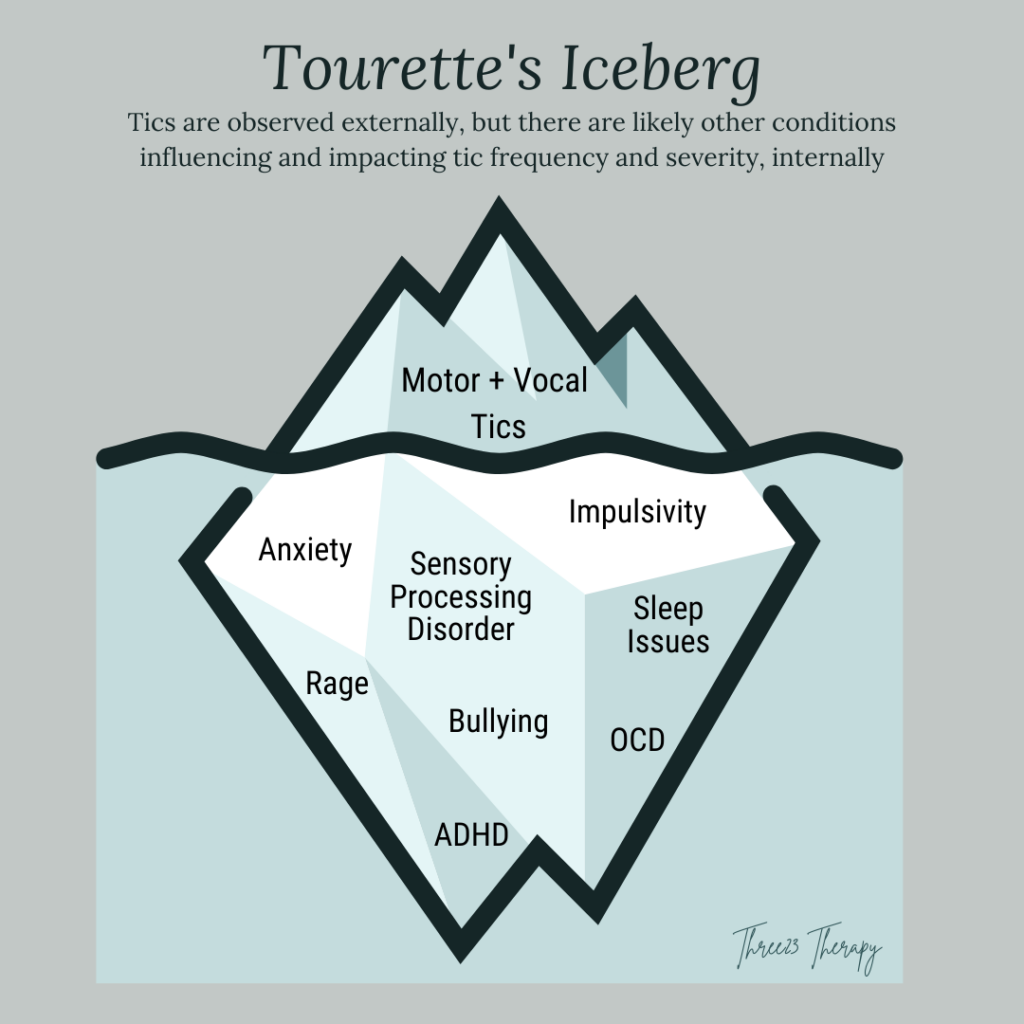Attention Deficit/Hyperactivity Disorder (ADHD)
- What you see: Ongoing pattern of inattention and/or hyperactivity-impulsivity that interferes with functioning or development. It typically starts in childhood showing symptoms of fidgety movements, poor impulse control, emotional regulation difficulties, constantly moving, etc.
- Role in Tics: Any emotional change and increase tics. Because the brain is so hyperactive with ADHD, tics are more likely to occur. Stimulant medication, which is often used to treat ADHD can also trigger tics
Anxiety
- What you see: Intense, excessive and persistent worry + fear about everyday situations. Signs of anxiety include, seeking reassurance, asking a lot of “what if” questions, becomes easily distressed by change, wants to control situations, and having a perfectionistic personality.
- Role in Tics: Anxiety produces physical responses (heart beat elevated, breathing faster, shaky, sweaty), and tics can be a physical symptom of anxiety as well. Tics are actually most likely to show up during stress
Obsessive-Compulsive Disorder (OCD)
- What you see: Marked by intrusive thoughts and compulsive behaviors. It feels like your brain is telling you a rule you have to follow. If you don’t follow it, your brain says something bad will happen or you will feel uncomfortable.
- Role in Tics: Some compulsive behaviors can look like tics. The difference is that tics occur with a weird sensation warning while OCD is a “do this or else” thought first. The person does the OCD to prevent the “or else”
Sensory Processing Disorder (SPD)
- What you see: Sensory processing is how we interpret and engage with our environment (vision, smell, hearing, taste, touch). We all have unique sensory systems which effect our preferences.
- Role in Tics: People with tics are known to be more sensitive to things in the environment. Overstimulation of sensory input can cause a tic attack (explosion of tics at one time)
You Are More Than Your Diagnosis
These co-occurring conditions may make it harder for your child to perform in certain areas of life, but it is NOT impossible for them to be successful + do what they love! There are SO many incredible and successful + notable people who have many of the conditions discussed above. With perseverance + bravery, your child can overcome all the challenges their conditions throw at them. Remind your child in a loving way that they are more than their diagnosis + it’s possible to do anything they set their minds too. Here’s a really awesome list of famous people with these conditions
Find Local Support
The Tourette Association of America (TAA) offers and provides local support and resources across the nation to families and individuals living with Tic Disorders. Find your local chapter at https://tourette.org/resources/local-support/

Hi, this is a comment.
To get started with moderating, editing, and deleting comments, please visit the Comments screen in the dashboard.
Commenter avatars come from Gravatar.